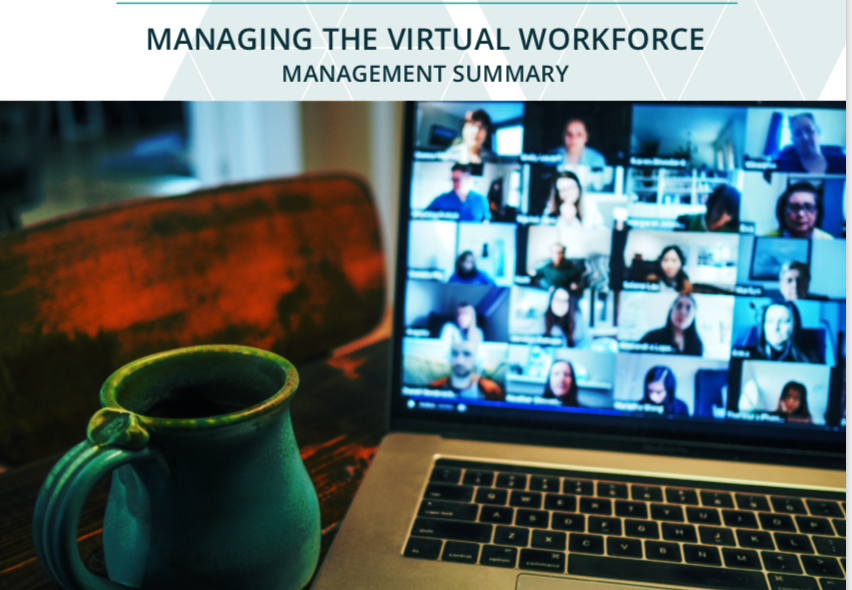Trust, social cohesion and information sharing are the most potentially vulnerable to damage when people work virtually, according to a study of around 750 academic papers conducted on behalf of the Advance Workplace Institute (AWI), a global workplace management body. As organisations rapidly embrace home working in response to the Covid-19 pandemic, the study warns that without active management to respond to changes in working, team dynamics are under risk with a knock on effect on both employee happiness and performance.
“Covid-19 has accelerated the notion that the workplace is wherever you want to work and not necessarily a physical office,” says Andrew Mawson of Advanced Workplace Associates, the consultancy which founded the AWI. “Virtual working is here to stay, and this brings serious challenges for managing the modern workforce.”
The AWI partnered with the Centre for Evidence Based Management, a global network of top-flight academics, to analyse all the relevant academic research. It studied 35 primary studies and 10 meta-analyses (which themselves drew on 715 original studies) to produce a report, Managing The Virtual Workforce, which is released to AWI members today.
The report has six main conclusions:
Working apart impacts team dynamics, the frequency and quality of communications, levels of consensus and conflict, and the amount and quality of social interaction. All of these impact the performance of teams and the outcomes they generate.
Successful virtual working requires an understanding of the differences that people experience, compared to being co-located. To avoid damage to team and community performance, people need to respond to the differences and find alternative ways to operate.
Effective virtual teams are determined by the strength of their social and cognitive states – i.e. the degree to which they are socially cohesive, trust each other, operate within a psychologically safe climate and share skills, experience and knowledge freely.
While all factors interconnect, trust and communication lie at the foundation of cohesion, supervision, communication, the sharing of skills and knowledge, work relationships and the performance of virtual teams.
Trust, social cohesion and information sharing seem to be the most potentially vulnerable to damage when people work virtually and must be consciously understood and actively managed – they can’t be left to chance.
In virtual teams there is potential for everyone to be a leader – home based employees respond well to more transformational management styles. This involves creating a strong team structure, empowering and guiding the team, involving them in the development of group goals and supporting them in actively reflecting on decision making and outcomes.
Members of the AWI have noted that organisations globally have adapted quickly to the need for the vast majority of their workforces to operate from home. However they caution that these are early days in the workplace revolution for many organisations, and that they will need to change their management strategies to ensure teams can work as well virtually as they did in a single office.
“Organisations increasingly need to harness their knowledge resources as opposed to controlling and ‘managing’ them,” added Andrew Mawson. “The role of leadership is about creating the conditions for growth and directing the energy. When we are working in a more virtualised model, old models become more difficult and we need new understandings and practices to deliver success in a virtualised world.”







